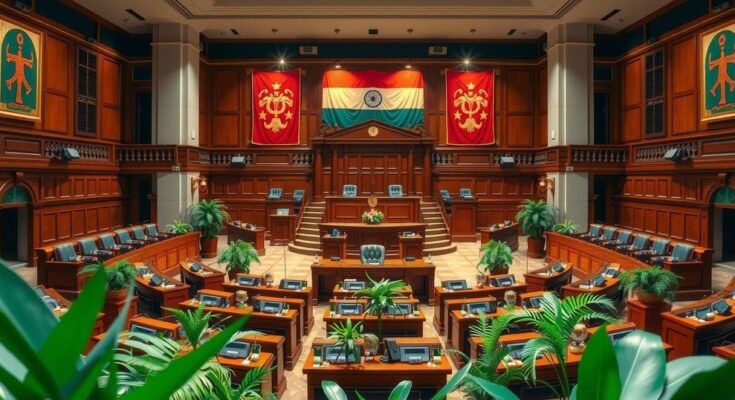The article discusses the pivotal role of the Liberian Senate in addressing national security issues, particularly regarding the United Methodist Church. It examines the Senate’s constitutional authority to summon individuals and highlights the importance of proactive legislative intervention to prevent societal discord. The need to rise above partisan politics for the benefit of national unity is emphasized throughout the discussion.
This article examines the vital role of the Liberian Senate in addressing national security concerns, particularly through the lens of the current issues facing the United Methodist Church in Liberia. Engaging in discussions rooted in governance, it emphasizes the Senate’s constitutional authority to summon individuals and groups to safeguard national interests. Such legislative power is pivotal in preventing crises that arise from societal discord.
The Legislature, comprising the Senate and House of Representatives, is tasked with representing the populace, overseeing government functioning, and enacting laws. The Senate’s ability to summon parties to hearings stems from its mandate to promote transparency and accountability, which are foundational to national security. Failure to address tensions—be it political, sectarian, or organizational—can result in broader societal unrest, making the Senate’s investigative role critically important.
Historically, the Senate or House of Representatives has intervened in issues affecting national security, demonstrating significant governance impact. One notable instance is the U.S. Senate’s actions during the civil rights movement, which showcase legislative responsiveness to societal tensions. In Liberia, past interventions, particularly during civil conflicts, highlight the necessity of an active Senate in resolving potential crises, especially related to influential groups such as the United Methodist Church.
The situation within the United Methodist Church is a relevant case study, as internal conflicts pose risks of societal division and unrest. The church plays a crucial role in promoting community values among many Liberians. Therefore, the Senate must issue summons to church officials to address these conflicts, thus demonstrating a proactive approach to maintaining national unity and peace.
According to Article 34 of the Liberian Constitution, the Senate has the authority to summon witnesses and conduct investigations. This legal framework enables the Senate to address matters affecting national stability and community cohesion. The Senate must act as a counterbalance to executive power, ensuring comprehensive oversight that captures emerging issues. Situations like the disagreements within the United Methodist Church necessitate legislative engagement to safeguard the populace’s welfare.
Nonetheless, the efficacy of the Senate’s actions can often be undermined by partisan politics, with rivalries hindering constructive dialogue. This political environment can prevent timely legislative intervention during urgent matters. It is crucial for Senators to prioritize national interests above party loyalty, particularly when addressing issues related to the United Methodist Church.
Given the pressing implications of escalating tensions, the Senate should actively summon church leaders to encourage dialogue and foster reconciliation. This endeavor must also include collaboration with civil society, religious leaders, and community members to create a bridge between governance and the citizens’ needs. Promoting open conversation will enhance understanding and accountability, crucial for a stable society.
Ultimately, the Liberian Senate possesses the legal authority to address issues of national security impacting private groups. Despite the challenges posed by partisan politics, it is imperative for the Senate to rise above these divisions, thereby fulfilling its constitutional responsibilities. Engaging in contentious matters will empower the Senate to stave off potential crises while promoting harmony and demonstrating a commitment to democracy, accountability, and national security.
The role of the Liberian Senate in safeguarding national security is critical, particularly regarding conflicts within significant institutions like the United Methodist Church. Its constitutional authority empowers it to summon relevant parties to facilitate discussions that can prevent societal discord. By prioritizing national interests over partisan politics, the Senate can effectively promote accountability and stability, ultimately fostering a peaceful society. Engaging various stakeholders in dialogue further enhances efforts to address underlying tensions and maintains a cohesive social fabric in Liberia.
Original Source: frontpageafricaonline.com




